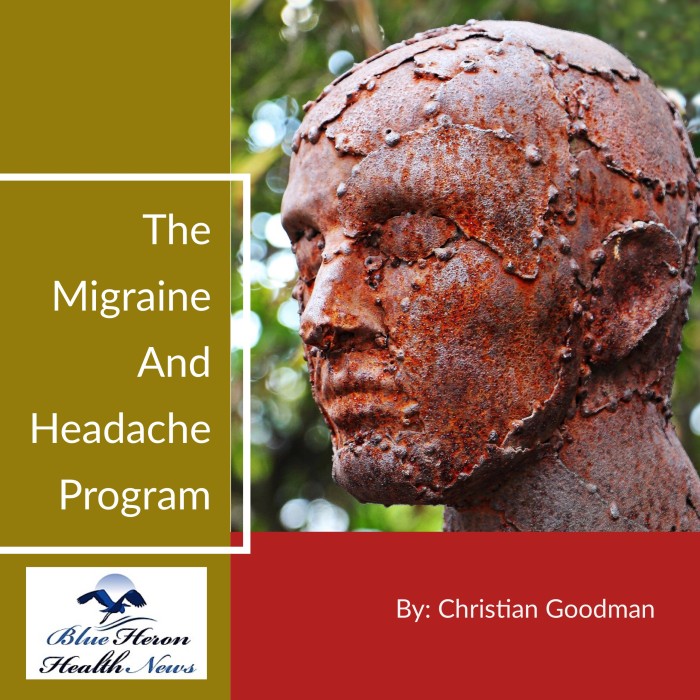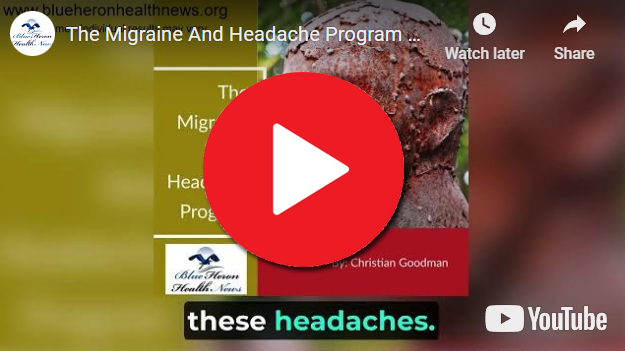
The Migraine And Headache Program By Christian Goodman This program has been designed to relieve the pain in your head due to any reason including migraines efficiently and effectively. The problem of migraine and headaches is really horrible as it compels you to sit in a quiet and dark room to get quick relief. In this program more options to relieve this pain have been discussed to help people like you.
What are rebound headaches, and how can they be avoided?
Rebound headaches, also known as medication-overuse headaches (MOH), occur when pain relief medications are used too frequently, leading to a cycle where the medication intended to relieve headaches ends up causing them. This can result in a worsening of the headache condition and a dependency on the medication.
Causes of Rebound Headaches
Rebound headaches are primarily caused by the frequent use of headache relief medications. The brain can become dependent on these medications, and as their effects wear off, withdrawal symptoms, including headaches, can occur. Here’s how different types of medications can contribute:
- Analgesics: Over-the-counter painkillers like aspirin, ibuprofen, acetaminophen, and combination analgesics (those that include caffeine) are common culprits.
- Triptans: These medications, often used specifically for migraines, can cause rebound headaches if used too frequently.
- Opioids: Strong painkillers like codeine and hydrocodone can lead to rebound headaches when used regularly.
- Caffeine-Containing Medications: Caffeine can contribute to rebound headaches, especially if someone regularly uses medications that contain caffeine or consumes caffeine in other forms.
Symptoms of Rebound Headaches
Rebound headaches typically present with the following characteristics:
- Daily or Almost Daily Headaches: The headaches may start as episodic but can become chronic, occurring more than 15 days per month.
- Worsening of Headache Patterns: The headaches may become more intense or frequent over time.
- Relief Followed by Return: The headache might improve temporarily with medication but return as the medication wears off.
- Associated Symptoms: These headaches can be accompanied by symptoms similar to those of migraines, such as nausea, irritability, and restlessness.
Prevention of Rebound Headaches
Preventing rebound headaches involves a combination of medication management and lifestyle adjustments:
- Limit Medication Use:
- Use Medications Sparingly: Avoid using headache relief medications more than two to three times per week. Overuse can quickly lead to rebound headaches.
- Follow Prescribed Dosage: Stick to the prescribed dose and avoid taking extra medication for added relief.
- Alternative Pain Management Strategies:
- Non-Medication Approaches: Consider non-pharmacological treatments for headaches, such as biofeedback, cognitive behavioral therapy (CBT), acupuncture, or physical therapy.
- Relaxation Techniques: Stress management through relaxation techniques like meditation, deep breathing exercises, or yoga can help reduce the frequency of headaches.
- Preventive Medications:
- Long-Term Preventive Treatment: If you suffer from frequent headaches, consult with your doctor about preventive medications that can reduce the frequency of headaches without leading to rebound headaches.
- Caffeine Management:
- Monitor Caffeine Intake: Be cautious with your caffeine intake, especially if you’re using caffeine-containing medications. Gradually reduce caffeine consumption if necessary.
- Regular Medical Evaluation:
- Consult a Healthcare Provider: Regular check-ups with a healthcare provider are important, especially if you experience frequent headaches. Your doctor can help you manage your medication regimen to avoid rebound headaches.
- Withdrawal Management: If you suspect you’re experiencing rebound headaches, consult your doctor for a safe plan to reduce and eventually stop the overused medication. This process should be supervised to avoid severe withdrawal symptoms.
- Healthy Lifestyle:
- Regular Sleep: Maintain a consistent sleep schedule to avoid triggering headaches.
- Healthy Diet: Eat balanced meals at regular intervals to keep your blood sugar levels stable.
- Hydration: Drink plenty of water to stay hydrated, as dehydration is a common headache trigger.
- Exercise: Regular physical activity can help reduce the frequency of headaches by improving overall health and reducing stress.
Managing Rebound Headaches
If you’re already experiencing rebound headaches, here’s what you can do:
- Gradual Medication Reduction:
- Taper Off Medication: Gradually reduce the use of the offending medication under your doctor’s supervision. Stopping abruptly can worsen headaches and cause withdrawal symptoms.
- Transition to Preventive Treatment: Your doctor might prescribe preventive medications to help manage headaches during the withdrawal period.
- Temporary Increase in Headaches:
- Be Prepared: Understand that headaches may temporarily worsen when reducing or stopping the overused medication. This phase is challenging but necessary to break the cycle.
- Supportive Care:
- Stay in Contact with Your Doctor: Regular communication with your healthcare provider is important during the withdrawal phase. They can provide support and adjust treatment as needed.
- Seek Alternative Therapies: During this period, consider complementary therapies like acupuncture, relaxation techniques, or physical therapy to manage pain.
By managing medication use carefully and adopting healthy lifestyle practices, rebound headaches can be prevented, allowing you to regain control over your headache condition.

The Migraine And Headache Program By Christian Goodman This program has been designed to relieve the pain in your head due to any reason including migraines efficiently and effectively. The problem of migraine and headaches is really horrible as it compels you to sit in a quiet and dark room to get quick relief. In this program more options to relieve this pain have been discussed to help people like you.